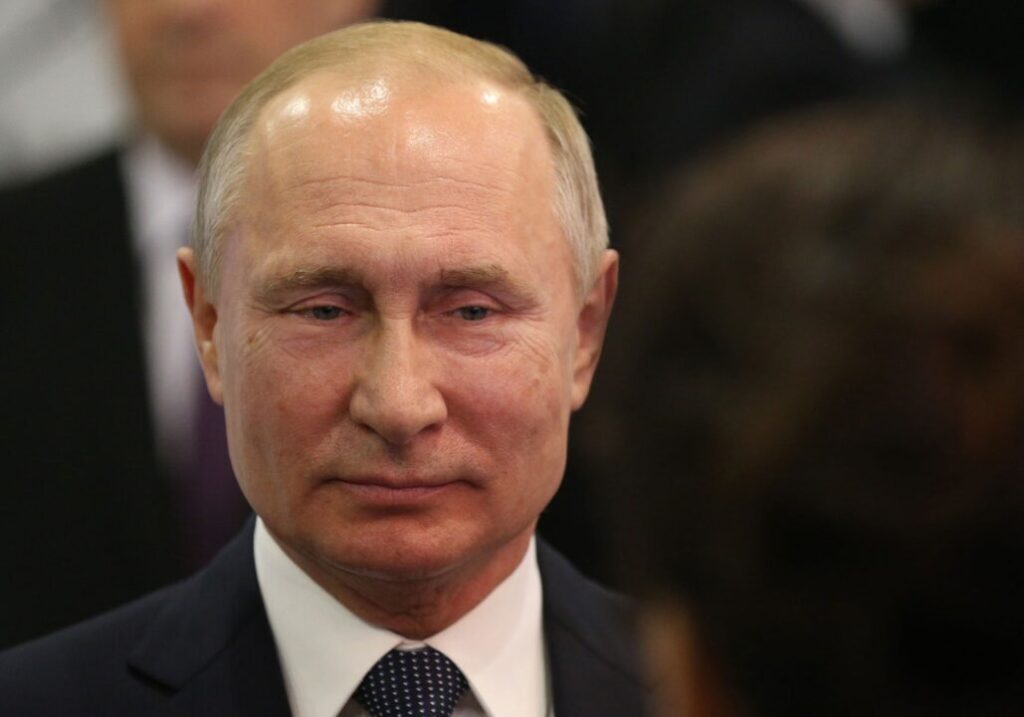One of the salient features of the Russian war against Ukraine is that Russia is making no distinction between soldiers and civilians in choosing targets for its aggressions. This is distinct from wars where the focus has been on attacking one’s military counterparts. The ultimate goal of the Russians in the Ukraine appears to be an indiscriminate destruction leading to the obliteration of the Ukrainian presence in its own territory.
To an outsider, this strategy seems very diffuse, like a kind of overkill in relation to the aims of taking over the Ukraine and other former Soviet republics in order to attempt to reconstitute some semblance of the former Soviet Empire. Perhaps it’s an attempt to terrorize the Ukrainians into submission. Except that not only is it not working, but it’s strengthening the resolve of the Ukrainians to defeat the Russians and push them out of all Ukrainian territory (including Crimea) once and for all. So maybe this would be a good time to explore what I think is one less apparent explanation for Russia’s somewhat unfocused scattershot approach to this war.
The breakup of the Soviet Empire led to a profound malaise among Russia’s ruling class. Yes, as private citizens, many powerful individuals also became extremely wealthy individuals. The chaos that resulted from the breakup paved the way for a lot of corruption among the country’s leaders. And yet for people like Putin, money was obviously not enough. As far as Putin was concerned, Russia had lost not only its individual satellite countries, but it had lost its empire as well as the prestige and power that came from being one of the two most powerful countries in the world. Being the leader of an empire generated a lot of recognition for Putin and his cronies. Losing the empire, Russia still had power from its oil revenues and from its space program. But it was now definitely not one of the two most powerful countries in the world. Russia had been replaced as the United States’ main competitor by China. And this had led to a tremendous loss of face for Russia. And to some extent, a loss of purpose as well. Now Russia had to sit on the sidelines, as the world focused on the summits between the United States and China to observe the major diplomatic directions that were to be taken in the world.
As it sank into a more passive posture, Russia’s leaders (particularly Putin) also sank deeper and deeper into an experiential vacuum. Granted, they would intermittently pull out of their numbness by cyber hacking and Putin loved to poison individuals who he considered to be his enemies. Finally, Russia did take over parts of Georgia and the Crimea. But these were all as much nuisance actions as they were simple acts of war.
The displacement of Russia occurred against the backdrop of the increasing effects of frictionlessness and mediation that were the result in Russia as in other modern societies of the growing pervasiveness of modern technology. The growing presence of modern technology in Russia only exacerbated the numbness generated by the displacement of Russia from its former position of power in the world. Now when a person like Putin sinks into such an uncomfortable state, his first instinct is to do whatever he can to pull himself out of it. The solution usually involves some sort of shock with some form of abrasive stimulation. The emphasis is on an enveloping shocking experience rather than a focused surgical action. Originally, the shocking experience was going to be limited to suddenly marching into Ukraine, being greeted by loving Ukrainians and that was going to be that. In other words, not too much shock. When the Ukrainians didn’t show appropriate appreciation, that is when the real abrasive stimulation got turned on. And that is when Putin’s war strategy in Ukraine became, to a great extent, diffuse destruction rather than a surgical defeat of the Ukrainian government. And anyway, one gets a greater abrasive experience from diffuse destruction than from a precision-based surgical war plan.
So, now this may be the real aim of Russia’s war on Ukraine. Not simply some mere accretion of more territory in order to regain the glory of empire. The purpose is to be found on the journey in the war, not on the ultimate destination. For Putin and his cronies, Ukraine putting up such a strong resistance has been a blessing in disguise. Putin and his cronies have been terribly numb from the shock of the loss of empire, and I think they are more interested in the abrasive experiences leading to the victory rather than the actual fact of the victory itself. And although they probably aren’t enchanted with the economic pain inflicted by all the sanctions, the friction generated by all the verbal conflict with the West must also certainly be an effective means of pulling them out of their malaise. Experiencing hatred from one’s enemies can be a very stimulating experience in the appropriate situation. Finally, the fact that the Ukraine war is creating such an economic mess on a global level must, on some level be very emotionally exciting for the Russian leadership. All this must seem very counterintuitive to most normal people in the West, but, then again, they haven’t had the particular combination of numbing experiences that the Russian leadership has had.


Artículos Relacionados: